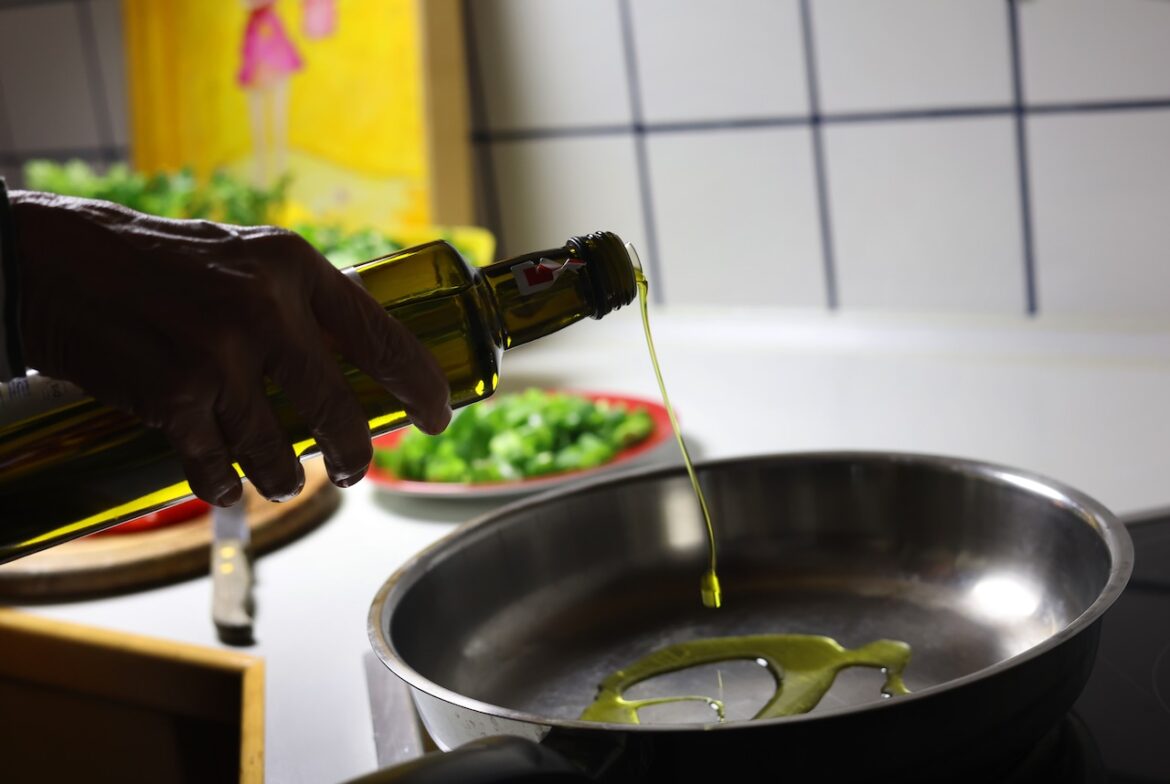CLEVELAND, Ohio – The Make America Healthy Again movement, led by Secretary of Health and Human Services Robert F. Kennedy Jr., is urging Americans to stop cooking with seed oils — a claim that health experts say is misleading and potentially dangerous. Kennedy argues that seed oils cause inflammation that leads to disease and recommends cooking with animal fats instead.
But medical professionals point to research showing that seed oils don’t cause inflammation and are safer than animal fats.
On Sept. 30, Kennedy posted on X:
“MAHA Tip of the Day. Cook with tallow, butter, or ghee instead of seed oils. These ancestral fats support hormones, protect your heart, & fuel strength. Seed oils drive inflammation, weaken cell function, & accelerate chronic disease. Choose healthy fats!”
This is a repetition of a post from April that read, “MAHA Tip of the Day: Ditch seed oils! Seed oils like canola, soybean, & corn are loaded with inflammatory omega-6s and oxidize easily, contributing to chronic disease & dysfunction. Instead, fuel your body with fats like butter, ghee, tallow, or coconut oil.”
Seed oils come from plants such as canola, corn, cottonseed, grapeseed, soybean, sunflower, safflower and rice bran. They’re crushed or pressed, then processed to make them clear and remove unpleasant taste and odors.
For those wondering, olive oil and avocado are considered fruit oils and haven’t been targeted by MAHA.
Kennedy repeatedly endorses butter, tallow (beef) and lard (pork). But modern science disagrees. Using the fats of our great-grandparents may feel nostalgic and taste good, experts say, but they don’t provide the benefits Kennedy claims.
In fact, nutritionists interviewed by cleveland.com and The Plain Dealer note that animal fats carry more health risks than seed oils.
“Research has also shown [animal fat] increases your risk for heart disease and other correlated diseases,” said Lizzy Traxler, a clinical dietitian and diabetes educator at University Hospitals.
Traxler advises patients on diets that prevent cardiovascular disease.
“We really emphasize plant-based oils. We promote unsaturated oils which come from plants, seed oils,” said Traxler, pointing to olive oil – arguably a fruit oil – as the best choice, followed by canola oil and other seed oils.
She says the mistake may be equating “processed” with “unhealthy.”
“A lot of people view any processed food to be inflammatory,” she said. “Seed oils shouldn’t be put in that bucket. Overwhelming research doesn’t show that they cause bad in our bodies.”
Traxler doesn’t demonize animal fats.
“There is a time and place that you can incorporate animal fats. They do offer different taste and flavor,” she said, noting, “If you are concerned about heart disease and diabetes you should try to do your best on cutting back from it when you can.”
Julia Zumpano, a registered dietitian at the Cleveland Clinic, also supports using seed oils over animal fats, vegetable shortening and margarine.
“Everyone is very confused,” she said of conflicting recommendations. “There’s not that much data to support animal fats. I agree it’s better to have a little butter than use a synthetic.”
For her, “synthetic” refers to something like margarine. Instead, she encourages patients to follow the Mediterranean diet and make olive oil the fat of choice.
“Seed oils are not the enemy, but they are in heavily processed foods and we should avoid processed foods,” Zumpano said. For example, she noted, “They’re found in junk food, in salad dressings and sauces. If you have the opportunity to make your own dressing, do it.”
“Things like beef tallow, bacon fat, duck fat, butter — we shouldn’t be using freely,” she added. “For populations who don’t have cardiovascular risks factors, they can use in moderation. Those with, should avoid and use extra virgin olive oil or avocado oil.”
Ideally, she said, “We don’t need to be frying food. Baking and roasting work wonderfully.”
Lindsay Malone, registered dietitian and instructor with the Case Western University department of nutrition, said some seed oils are better than others based on how they’re processed. Some are subjected to chemical extraction and deodorizing to make them suitable for eating.
“You can avoid that by getting organic, cold-pressed oils,” she said.
Malone also warns about animal fats beyond saturated fat concerns.
“Depending on how they’re raised, you’re ingesting everything they were exposed to,” Malone said. “What they were eating will impact the quality of the milk and fat. Eating grass produces higher Omega-3s.”
Omega-3s are healthy fatty acids the body needs but doesn’t produce.
A poor diet for the animals means they’re storing toxins in their fat, she noted, pointing to factory farmed-animals that live in “polluted” conditions.
“With animal fats, one of the best things you can do is find a product that was raised like you would raise in your own backyard — grassfed, wild,” she said.
“Even then I would push to eliminate animal fats and push toward plant-based oils,” Malone added, especially for frying.
If you purchase a product or register for an account through a link on our site, we may receive compensation. By using this site, you consent to our User Agreement and agree that your clicks, interactions, and personal information may be collected, recorded, and/or stored by us and social media and other third-party partners in accordance with our Privacy Policy.


Dining and Cooking